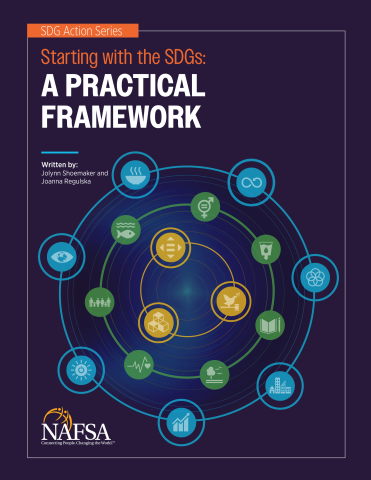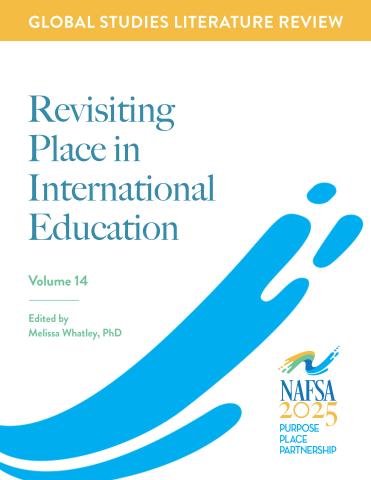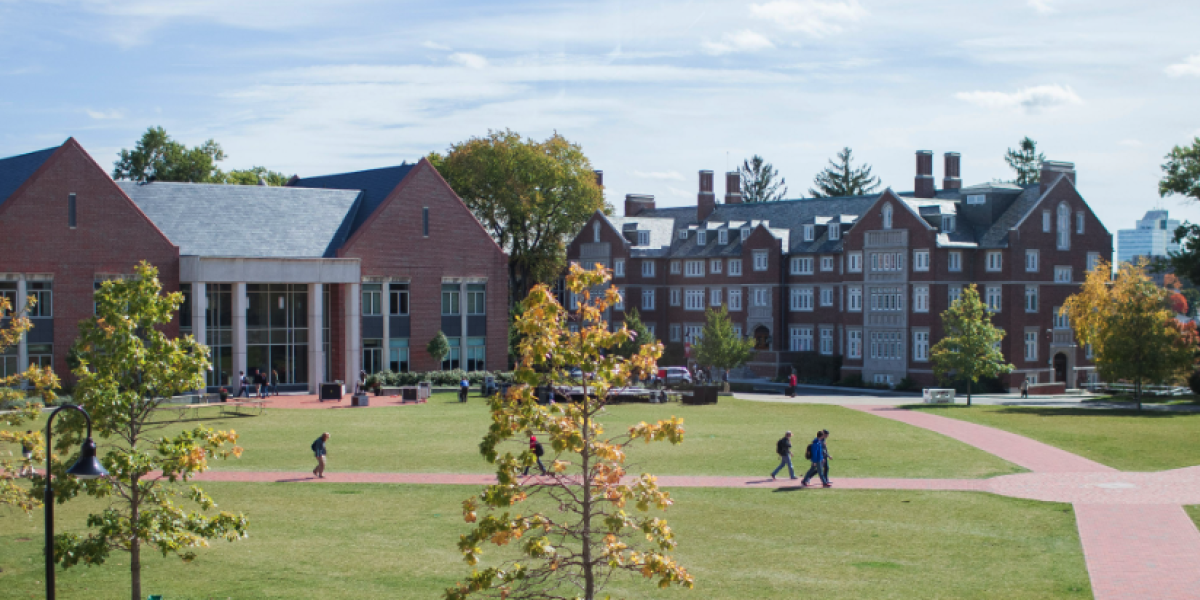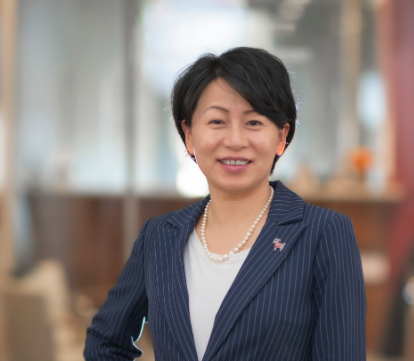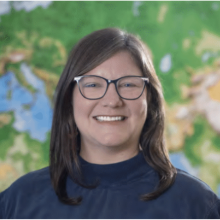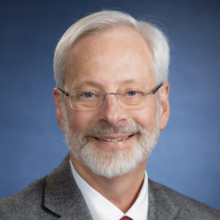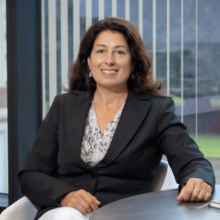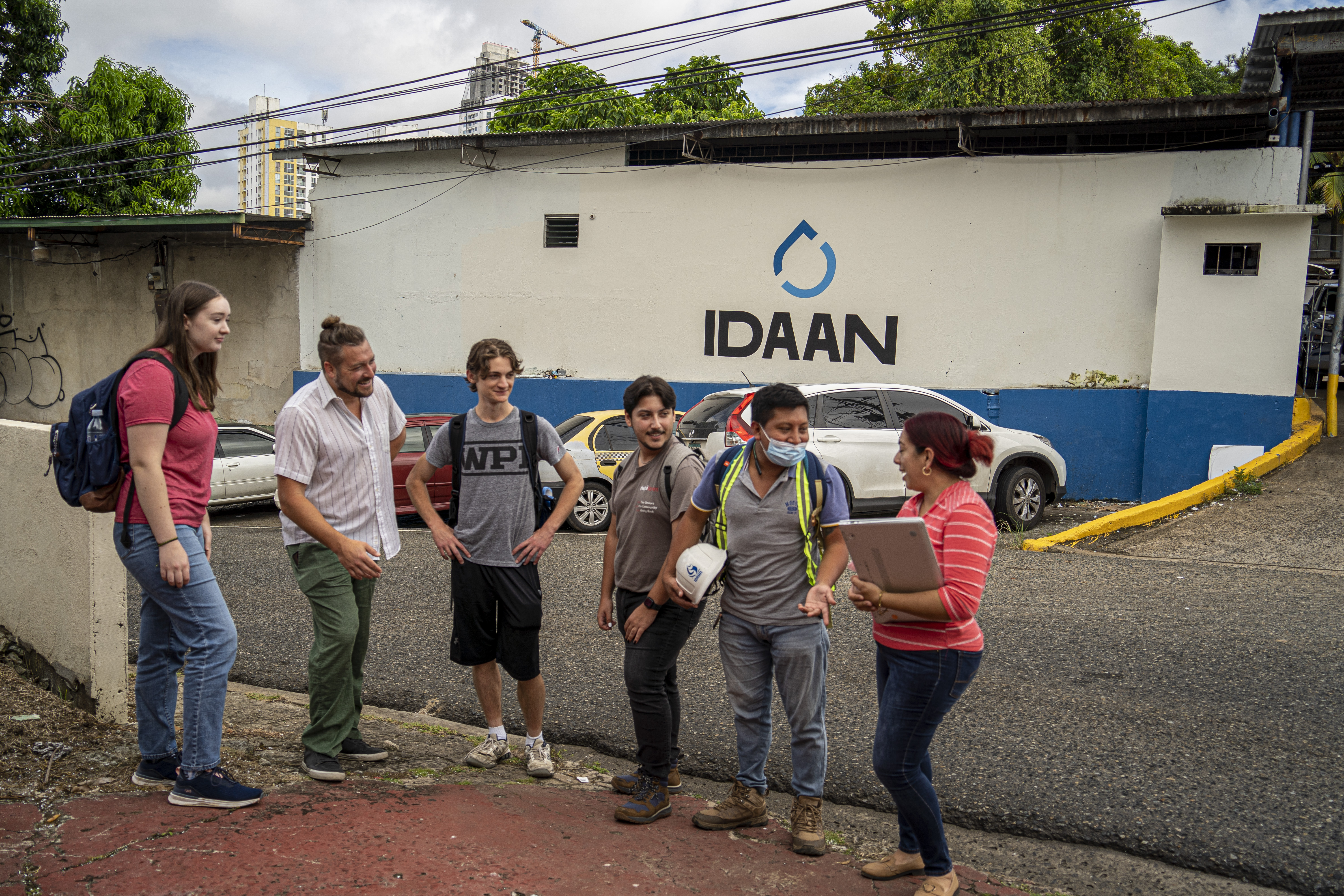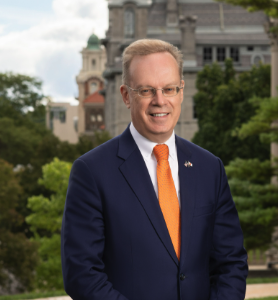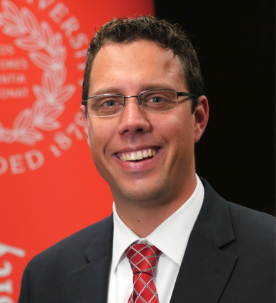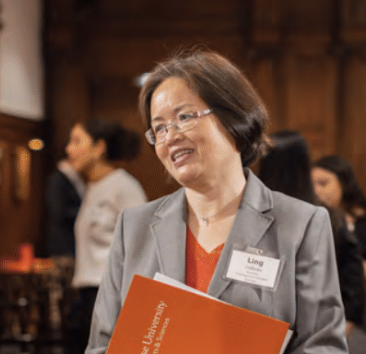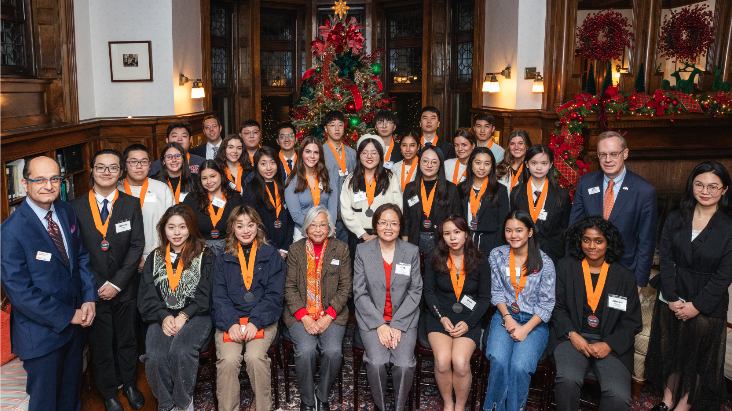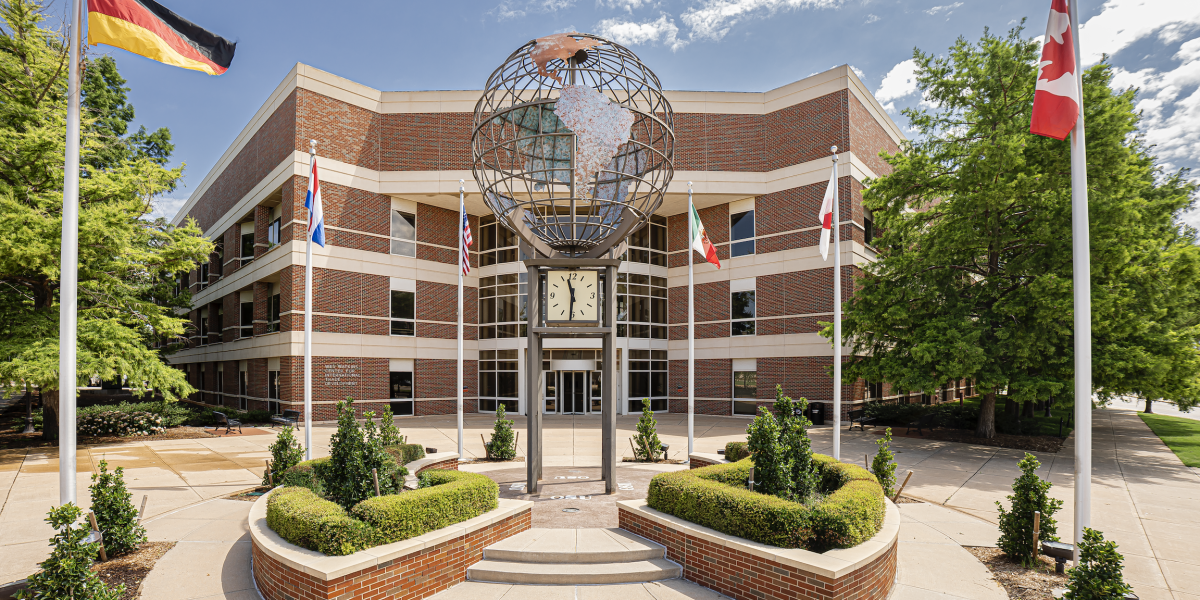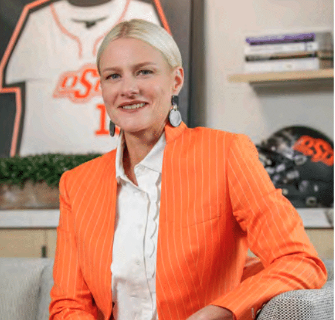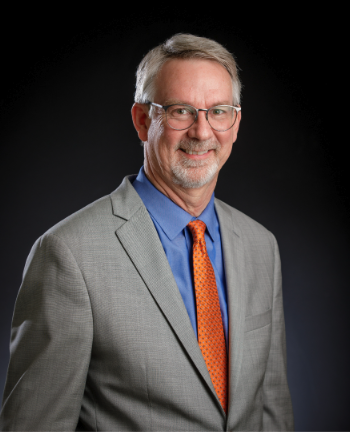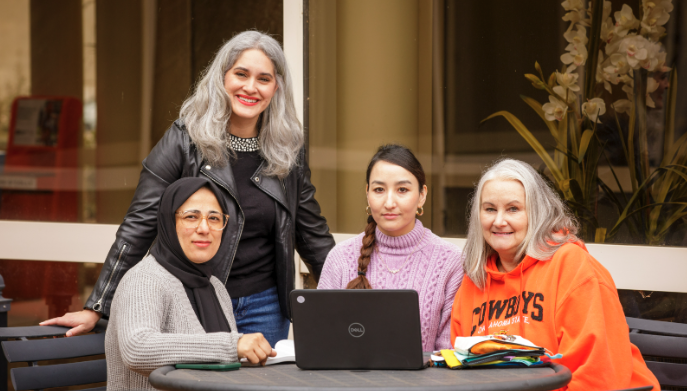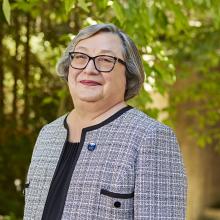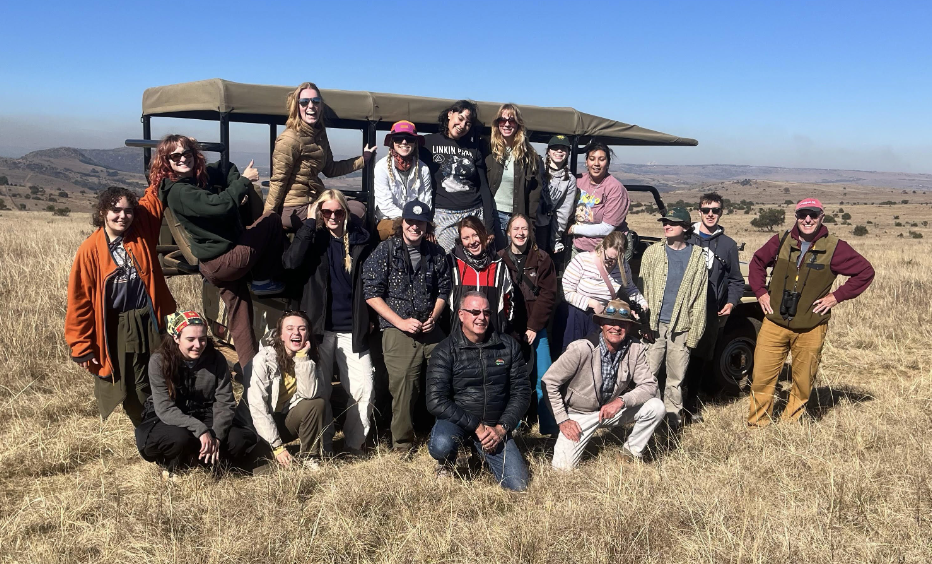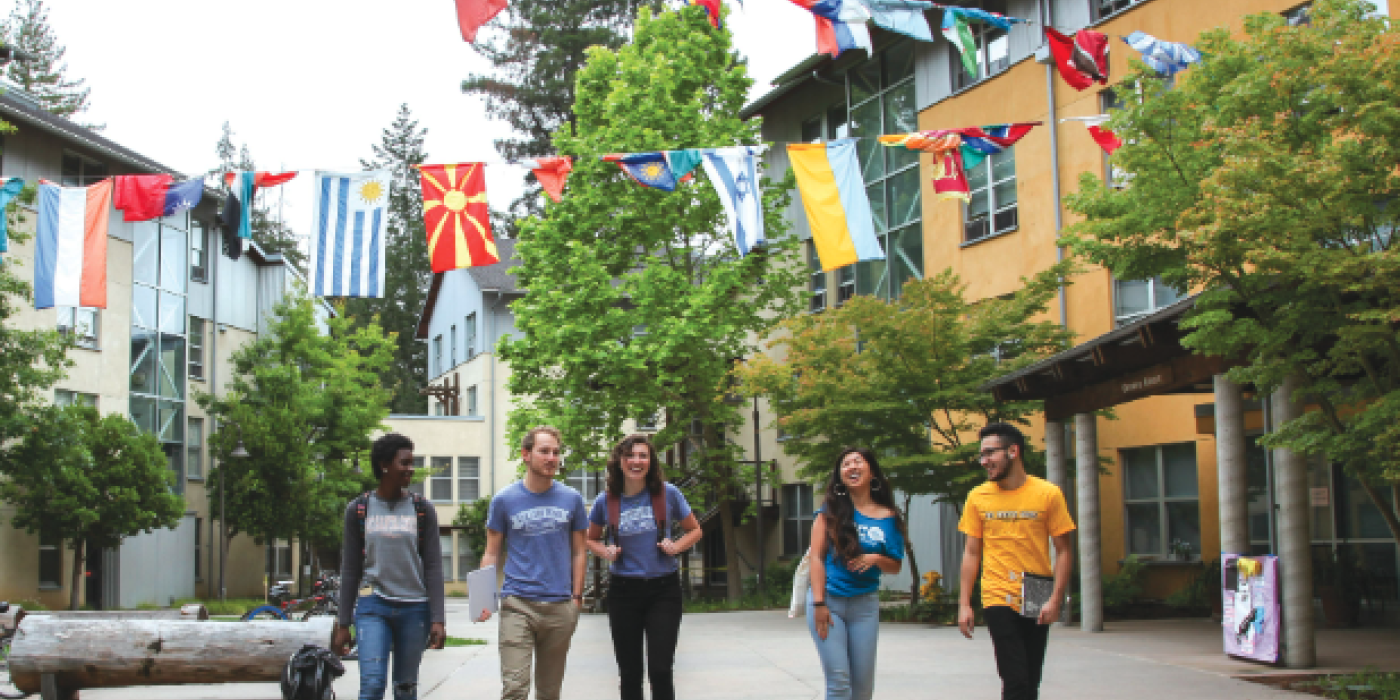
Teaching, Learning, and Facilitation

Recognizing Innovative Research in IE: Intercultural Competence and Global Learning
Rethinking Internationalization Through Pathway Programs
Enriching Faculty-led Programming with Intercultural Learning Through a Decolonial Lens
2024 Spotlight Worcester Polytechnic Institute
Worcester Polytechnic Institute, a private research university in Worcester, Massachusetts, is renowned for its project-based learning model. These projects are a core part of the university's approach to education, which prepares students to tackle real-world problems through a combination of theory and practice. Students can choose to complete team research projects off campus at more than 50 project centers worldwide through the institution’s signature Global Projects Program. In 2017, the university launched Global Projects for All, an initiative aimed at growing participation in the program by boosting financial assistance and increasing the number of locations where students can complete projects.
In 2023, Worcester Polytechnic Institute (WPI) aerospace engineering major Melissa Kelly, chemical engineering major Faith Suwannapong, and mechanical engineering major Adam Giordani made the long trek to Melbourne, Australia, for a seven-week project focused on plastic bottle cap recycling. Working at the Ecological Justice Hub, a program run by the nonprofit Jesuit Social Services, they conducted research and data analysis on the program's needs, created an assembly line to process bottle caps, designed educational materials to encourage cap collection, and held hands-on workshops to teach the community how to use the bottle caps to create other plastic products such as plant pots.
“We left them with all of the materials that they need to not only make more products but to continue the workshop that we created,” Giordani says. “It was more rewarding when we got back. We were like, ‛Wow, we just made a difference on the other side of the globe.ʼ”
For Kelly, the project provided a valuable opportunity to apply her technical skills in a real-world setting. “A lot of the stuff we do is very technical, so getting to go out into the community felt really rewarding,” she says.
The three students were named winners of the Forum on Education Abroad's 2023 Award for Academic Achievement Abroad. The WPI student team was one of two that were honored for rigorous and meaningful academic projects completed during an education abroad program.
A lot of the stuff we do is very technical, so getting to go out into the community felt really rewarding. —Student Melissa Kelly
Over the last 25 years, WPI students have completed 270 projects with more than 50 organizations in the Melbourne area as part of WPI's Global Projects Program (GPP). Projects at the WPI Melbourne Project Center have addressed issues ranging from improving emergency response to wildfires by mapping vulnerable areas to developing solutions for plastic waste. The longevity of the project center and the impact of the work that students have done in the state of Victoria point to the importance of the GPP for both students and host locations—and underscore why WPI has sought to expand access to the program to all of its students.
Celebrating 50 Years of Global Projects
As a leader in project-based learning, WPI encourages students to apply their education outside of the classroom and develop solutions for authentic, open-ended problems. Many undergraduate courses at the university have a project component. Additionally, all undergraduates must complete three collaborative academic projects to graduate: one within their major; another at the intersection of science, technology, and society; and a seminar or practicum in a chosen focus area in the humanities or the arts. Students can choose to complete these collaborative projects close to campus or farther afield, through the GPP.
The GPP—for which WPI won its first Senator Paul Simon Spotlight Award in 2003—has been a core part of the undergraduate curriculum for 50 years. The program's first project center was established in Washington, D.C., in 1974, and since then, the GPP has expanded across the world to more than 50 locations. The Global School, which comprises the Global Experience Office (GEO) and the Department of Integrative and Global Studies, collaborates with the three other schools on campus to manage the program, which has had more than 17,400 participants as of 2024.
The Global School is also responsible for recruiting, training, and supporting the 100+ faculty members who advise at project centers each year. Two faculty members typically accompany 24 students to a project site for seven weeks of full-time work.
Expanding Access to the GPP
Approximately 85 percent of WPI students now participate in the GPP, thanks in part to the Global Projects for All initiative, which was launched in 2017 as part of WPI's strategic plan and for which WPI was awarded its second Senator Paul Simon Spotlight Award in 2024. The initiative seeks to grow participation in the GPP by removing financial barriers and increasing the number of global projects on which students can collaborate.
“We're doing something that's so distinct from our peers as a STEM institution that requires all of our students to be trained in social science research methods, in addition to the core of their technical program, and aims for everybody to participate in a global program,” says Kathleen Head, director of the GEO.
As part of the Global Projects for All initiative’s focus on scaling up the GPP, WPI has increased the capacity of its project centers and the number of faculty supporting off-campus advising and project work, says Kent Rissmiller, associate dean of the Global School. The university has also developed an in-house algorithm and “decision support tool,” which combines input from students and project center directors to evaluate mutual compatibility and generate student placements.
In order to defray the cost of participating in the GPP, WPI also established the Global Scholarship as part of Global Projects for All. The scholarship—which provides up to $5,000 to every undergraduate student and began with the class of 2022—is funded through internal operating budget support and a variety of fundraising efforts, including gifts and endowed funds.
We are working all the time on new ways to expand accessibility, diversity, and inclusion in our off-campus programs so that all students can benefit from real-world, project-based learning. —Global School Dean Mimi Sheller
Last year, WPI secured a grant from the Institute of International Education’s American Passport Project to help pay for passports for students who don't already have them. This year, WPI was awarded an Increase and Diversify Education Abroad for U.S. Students (IDEAS) grant from the U.S. Department of State to support students with disabilities in the GPP and improve accessibility at WPI's project centers. “We are working all the time on new ways to expand accessibility, diversity, and inclusion in our off-campus programs so that all students can benefit from real-world, project-based learning,” says Mimi Sheller, dean of the Global School.
As part of its efforts to ensure student success in the GPP, the GEO prepares students before departure and collaborates with the Office of Accessibility Services and the Office of Diversity, Inclusion, and Multicultural Education to support students with disabilities and diverse identities. “Intercultural communication begins at home, including through our support for equitable and effective teamwork, and continues to grow as our students expand their horizons through off-campus research in diverse locations,” Sheller adds.
WPI also requires students to take a mandatory social science research course taught by faculty within the Global School before they travel to their GPP project center. They learn research methods, conduct initial background research, identify a scope of work, and learn about their project site.
Measuring Impact
The GPP's impact is evident in student outcomes, including improved teamwork and problem-solving abilities. In a 2021 survey of WPI alumni, most of those who participated in one or more global projects reported various positive impacts. Nine out of 10 respondents, for example, reported that the program enhanced their ability to view issues from different perspectives and that they felt their project work contributed to their ability to function in the real world.
Students' participation in a wide range of project- based learning experiences supports WPI’s mission to transform lives, turn knowledge into action to confront global challenges, and revolutionize STEM education through distinctive and inclusive local and global projects.
“Our off-campus project experiences immerse students in diverse cultures and work in interdisciplinary teams to tackle complex real-world problems,” Sheller says. “When students have opportunities to apply their knowledge out in the world, they develop new perspectives, become well equipped to lead, and are meaningfully enriched, personally and professionally.
2024 Spotlight Syracuse University
Syracuse University, founded in 1870, is a private research university in the heart of New York State. With a student body of more than 22,000, including 15,000 undergraduates, the university has a long history of welcoming international students to its campus. The College of Arts and Sciences and the Maxwell School of Citizenship and Public Affairs collectively enroll around 5,000 undergraduates, and approximately 20 percent of those students are international, hailing from more than 60 countries. The schools’ International Student Success Model represents an innovative approach to advising international undergraduate students that provides them with proactive, holistic support as well as intercultural training for the staff who work with these students.
When Steven W. Schaffling, assistant dean of student success for the College of Arts and Sciences (CAS) and the Maxwell School of Citizenship and Public Affairs, joined Syracuse University in 2018, he recognized that there was a gap in academic support for the schools’ growing international population. He saw that retention rates for international students were lower than for their domestic peers, particularly in the critical first year of studies.
Schaffling explains that, typically, an undergraduate student's first-semester GPA is the most heavily weighted factor in predicting one-year retention rates. However, at his previous institution, he found that international students would have lower GPAs at the end of their first term, but these students’ academic performance would then rebound at a higher-than-average rate in their second academic term.
Schaffling says that these rebound rates indicate that international students’ low first-semester GPAs aren't the result of a lack of academic ability but rather a lack of holistic advising that also addresses issues such as cultural adjustment. “What that was telling me was that the transition in the first term was offsetting them from where their true capacity was,” he says.
To bridge the gap in support, Schaffling wanted to create a position outside of the international office that was situated within academic and career advising for CAS and Maxwell. Syracuse’s overall approach to advising is deeply integrated, he says, with academic and career guidance embedded in the academic units.
In 2020, the university hired Ling LeBeau as its first-ever director of international student success. LeBeau's role has two key components. First, she works directly with Schaffling and the advising office for CAS and Maxwell to create and implement strategic programming to engage the international population, with a focus on first-year undergraduate students. Second, LeBeau is responsible for developing the intercultural competencies of the 24 academic and career advisers within CAS and Maxwell so they can better support international students.
“Understanding the cultural norms really helped us inform how we could better advise [international students] academically and careerwise,” says Elena M. Paolini Williams, director of first-year advising in CAS and Maxwell.
Fostering Peer Connections and Academic Interventions
To address the unique challenges faced by international students, LeBeau developed the International Student Success Model, which has five core pillars: prearrival academic coaching, peer mentoring, adviser training, academic intervention, and targeted communication. The program begins before new international students even set foot on campus, with a self-paced online course that familiarizes them with academic expectations and available resources.
Once on campus, each new international student is paired with a peer mentor—a returning student who can be either a domestic student or a fellow international student. The mentor provides guidance and support during the first year. By structuring the peer-mentoring program with a defined syllabus and learning outcomes, the university has been able to maximize its impact, Schaffling says.
Ines Harouchi, a third-year student from Morocco, is one of these peer mentors. She recalls how valuable it was to have someone she could easily reach out to with questions when she was a new international student: “It was nice to know that there was someone I could talk to if I was homesick or if I needed help with anything academically.”
LeBeau's research has found a significant difference in the GPAs of students who are actively engaged with a peer mentor versus those who are not, underscoring the impact of the program. The university takes a data-driven approach to the student success model, soliciting student feedback and tracking the peer-mentoring program annually to identify areas for improvement. “We let those assessments drive where we should focus and what we should do differently,” Schaffling says.
In fall 2022, the retention rate for international students in CAS and Maxwell reached 91.5 percent—the highest since 2010.
Peer mentoring is one way that Syracuse cultivates a sense of belonging for international students. Another is creating ways for students to connect and share their questions, ideas, and doubts. To that end, LeBeau has created communication channels to help foster a sense of community, such as a weekly international student newsletter and social media groups on platforms like WeChat, WhatsApp, Instagram, and Facebook.
Students don't know what they don't know. You need to ask questions because students otherwise don't know you can help them with that. —Director of International Student Success Ling LeBeau
LeBeau has also provided training to academic and career advisers and graduate teaching assistants, particularly in departments with large international student enrollments, in order to enhance their intercultural competence. For example, she led a workshop with the Center for Teaching and Learning for graduate students and faculty in the Department of Biology to discuss strategies for effectively communicating with and supporting international students in the classroom.
Part of LeBeau’s approach is “intrusive” advising. “Students don't know what they don't know,” she says. “You need to ask questions because students otherwise don't know you can help them with that.”
Building a Community of Practice
While piloting the International Student Success Model at Syracuse, LeBeau saw the opportunity— and need—to share her experiences more widely. As a longtime NAFSA member and a volunteer leader in the International Education Leadership and Teaching, Learning, and Scholarship Knowledge Communities, LeBeau recognized the importance of engaging with professional associations to expand the reach of Syracuse’s model to other institutions.
She and Schaffling turned to the National Academic Advising Association (NACADA), identifying a gap in support for international students within the organization's 37 advising communities. Working with NACADA, LeBeau proposed establishing an official International Student Success Advising Community. To build her case, she conducted a global survey of academic advisers, which found that 96 percent of respondents had an urgent need for professional development opportunities around advising international students. After looking at these data, NACADA's board of directors approved the new community in March 2023.
We're really proud of what we've built here. And we're excited to see how it can benefit even more students in the years to come. —Assistant Dean of Student Success Steve Schaffling
Peer institutions have already reached out to learn more about Syracuse’s model after LeBeau published an essay about the university’s approach in NACADA's Academic Advising Today publication. “We really see this as the beginning of the model's impact on institutions elsewhere,” she says.
The effects of the model have also been felt across the university. During Syracuse’s recent academic strategic planning process, a working group of faculty and staff recommended encouraging the rest of the university’s schools and colleges to develop their own integrated strategies and staff to support international student academic success.
Schaffling sees promise in the signs of success that have emerged from the unique positioning of the International Student Success Model within the academic advising office for CAS and Maxwell. “We're really proud of what we've built here,” he says. “And we're excited to see how it can benefit even more students in the years to come.”
2024 Spotlight Oklahoma State University
Oklahoma State University, located in Stillwater, Oklahoma, serves nearly 25,000 students across five campuses. In 2021, the university exemplified its commitment to public service as a land-grant institution by establishing a program to aid Afghan refugees resettling in Oklahoma. The Afghan Family Project provides English-language programs, cultural programming, and wraparound support as refugees rebuild their lives in a new country.
When Afghan refugees started arriving in Tulsa, Oklahoma, in late 2021 after the U.S. military withdrew from Afghanistan, Randy Kluver, associate provost and dean of OSU Global, recognized a need—and an opportunity—for the institution to support the state's resettlement efforts. Oklahoma State University (OSU) had empty family housing units on campus due to the COVID-19 pandemic, and Kluver realized the university had the ability to welcome Afghans and fulfill its responsibility of addressing pressing social issues in Oklahoma.
“As a land-grant university, part of our mission is to serve the state,” Kluver says. “Moving Afghan families to Stillwater was an attempt to create additional resettlement capacity.”
OSU's English Language and Intercultural Center (ELIC) became the hub of a program that was created to help integrate the new arrivals into the community: the Afghan Family Project.
During 2021–22, two OSU faculty, Stephanie Link and Michael Amory, directed the center, taking on the majority of the project planning and initial resettlement efforts. By January 2022, the refugees started arriving on campus. In total, the university welcomed 72 Afghans—around 20 families—to Stillwater, which has a population of about 50,000.
The ELIC has worked to offer English-language classes tailored to the specific needs of the group. While Emily Boersma—who took over as the ELIC director in August 2022—and her team started with beginner, intermediate, and advanced English-language classes, they soon realized they needed to further divide the classes to accommodate different demographics and learning styles. They created separate classes for men and women, stay-at-home moms, and different first- language groups. They even offered courses at home for those who were not comfortable in a traditional classroom setting.
As a land-grant university, part of our mission is to serve the state. —Associate Provost and OSU Global Dean Randy Kluver
In addition to providing English-language instruction, the ELIC offers cultural support and programming. It also employs several of the refugees who are enrolled at OSU, such as Zhina and Bareen, to assist with the resettlement project. (Editor’s note: Zhina and Bareen requested that their last names not be used in order to protect their identities.) These students serve as translators and cultural liaisons, bridging the gap between the Afghan families and the university community. The university also hired an Afghan program coordinator using funding from the Oklahoma Department of Human Services.
Zhina, who is completing a master's degree in global studies and works as a graduate assistant at the ELIC, helps coordinate cultural excursions and events for the Afghan families. These events, such as multicultural nights and Eid celebrations, bring the Afghan community together and provide a sense of social support.
Providing Wraparound Support
Beyond offering cultural and social support to the refugees, OSU Global collaborated with Oklahoma Human Services to secure funding for wraparound services. The initial six-month grant that it received from the department has been renewed twice, and OSU Global is currently securing an additional year of funding. Two case managers, Terri Hollarn and Joani Whitley, have been hired with this funding to assist refugees with accessing medical care, finding employment, and utilizing other services.
Whitley uses her counseling background to address psychological issues associated with resettlement, though providing mental health support through interpreters remains a challenge. “We've utilized telephone-based translation services to try to connect Afghans with counseling, but the language barrier and cultural stigma around seeking psychological help have made it difficult,” Boersma says.
In addition to these critical services, the university has sought to facilitate the refugees' access to higher education. OSU raised $100,000 for an emergency scholarship fund in collaboration with the university’s foundation and worked with the state of Oklahoma to grant access to in-state tuition to the resettled Afghans. (The Oklahoma State Regents for Higher Education have since made in-state tuition available at every public institution in the state to any student impacted by war.) The university also funds graduate assistantships that include tuition waivers for admitted Afghans who pursue graduate studies at OSU, Kluver says.
An Outpouring of Community Support
Local partners, including Stillwater Public Schools, the Islamic Society of Stillwater, and Catholic Charities of Eastern Oklahoma, have also provided critical support to the refugees. Volunteers have donated essential household items, facilitated English conversation practice, and helped Afghans with tasks like learning to drive.
“The outpouring of support from the community is what made this project successful,” reflects Boersma. “Local churches offered over $100,000 in financial assistance, which allowed us to provide expensive dental care that wasn't covered by benefits.”
For Zhina and Bareen, OSU's comprehensive support has helped them navigate life in a new country.
“When I arrived in Stillwater, I was suffering from a lot of problems, such as the trauma of leaving my loved ones. I didn't know what the next step would be,” Bareen says. “From the beginning, OSU welcomed us by providing an apartment with everything we needed. They are not just providing for our needs but supporting us in the best way.”
Zhina especially appreciates the social support. “OSU provided events to bring Afghan families together, not just in Stillwater but from places like Oklahoma City. We had multicultural nights and celebrated Eid together,” she says.
Expanding Support to Other Groups
Boersma says the focus of the program has now shifted away from crisis management. The ELIC is offering TOEFL preparation courses as more of the Afghans seek admission to OSU. Of the original 72 refugees, 30 have left the Stillwater area, mostly for family reunification elsewhere in the United States or to pursue work in larger cities, such as Tulsa.
Those remaining largely see Stillwater as their new home and have started looking for more permanent housing. Some refugees have been able to remain on campus after their initial year of rent—which was paid for by a community partner—ran out, either by studying or working at the university. OSU also still provides some campus housing support, with two campus housing units earmarked for refugee families. Other refugees are integrating further into the Stillwater area. One family purchased a home, while others are renting in the community.
“It's just been incredibly rewarding to watch these families settle in and start their lives over. The strength and resilience they've shown is amazing,” reflects Boersma.
OSU plans to continue welcoming Afghans and hopes to expand services to refugees of other backgrounds. “Opening our doors to these newcomers wasn't something universities typically do at this scale,” Kluver says. “But it has been a powerful example of mobilizing our resources to address a pressing human need in our state.”
2024 Comprehensive University of California, Santa Cruz
The University of California, Santa Cruz, a public research university serving more than 19,000 undergraduate and graduate students—including more than 1,500 international students—has made significant strides in expanding global learning opportunities, fostering international research collaborations, and creating a more inclusive, globally engaged campus community. Through innovative programs, strategic partnerships, and a commitment to access and equity, the university has emerged as a leader in comprehensive internationalization.
Although the University of California, Santa Cruz (UC Santa Cruz) has long been involved in international research and engagement, its comprehensive approach to internationalizing the campus emerged in the last two decades. In the early 2010s, the university implemented a new strategy to increase its international student population and enhance global diversity. International student enrollment grew from just 140 in 2013 to more than 1,500 in 2019.
The growth resulting from UC Santa Cruz’s success in enhancing international student recruitment and enrollment came with challenges. “Faculty identified the need for support services to be in place for these students,” says Becky George, assistant vice provost of global engagement.
To help lead a coordinated approach to its internationalization efforts, the university hired George as senior international officer in 2015. The next year, UC Santa Cruz established a new unit on campus—the Division of Global Engagement—which now includes Global Learning, International Student and Scholar Services, International Programs, and Global Initiatives.
The division quickly developed infrastructure and support services, increasing the number of international student advisers, developing robust orientation and ongoing programming, and creating academic support, such as a writing center. These efforts also included launching the Graduate Preparation Program, which provides intensive academic English instruction and cultural orientation for international graduate teaching assistants.
Serving as a hub for campus internationalization since its founding, Global Engagement has grown from a small team of eight to a robust staff of 26 who work to amplify UC Santa Cruz’s international efforts and promote its reputation as a global research university.
Developing a Strategic Plan for Internationalization
In addition to establishing the Division of Global Engagement, university leadership has spearheaded other campuswide internationalization endeavors. In 2018, the university joined the American Council on Education's Internationalization Lab, embarking on a two-year process to develop a strategic plan for internationalization. George says the initiative engaged faculty, staff, and students across campus through a series of listening sessions with 35 academic departments and town hall meetings open to the entire campus community. The resulting plan outlines five broad goals: expand and enhance globally focused research and engagement, provide global learning opportunities for all, strengthen student success, enhance the university’s global reputation, and define organizational structure.
The plan includes measurable objectives and a five-year implementation timeline that provides a map for advancing comprehensive internationalization across campus. Implementation progress is assessed annually and shared with the campus community through the Global Engagement website, an annual report, and a quarterly newsletter.
“To be able to have our students and our faculty and staff really be engaged global citizens and be able to be effective collaborators to address these enormous challenges we face in the world, we need to have a more global perspective,” says Chancellor Cynthia Larive.
Expanding Global Learning Opportunities
The University of California (UC) System has offered study abroad opportunities since 1962 through the systemwide UC Education Abroad Program, drawing students from all nine undergraduate campuses across the state. However, university leadership recognized that it was necessary to create a portfolio of global learning opportunities that catered specifically to the needs of UC Santa Cruz students through the development of new partnerships abroad. “Our portfolio has now grown to provide so many opportunities for students—from traditional study abroad opportunities through our exchange program and opportunities to develop career pathways through Global Internship programs,” says Alice Michel, who is executive director of global mobility and oversees global learning and international services staff.
Faculty-led Global Seminars offer unique study abroad experiences tied to faculty research interests and include experiential learning components. “Students often feel more comfortable going abroad for the first time with faculty they know,” says Kent Eaton, a professor of politics and chair of the university’s Committee on International Education (CIE).
The committee includes faculty representatives from different disciplines as well as students and advises the faculty senate and university leadership on issues such as the allocation of resources for international education and the welfare of international students at UC Santa Cruz. The CIE also plays a key role in reviewing proposals and providing guidance for new faculty-led study abroad programs. “We want to see faculty committed to doing it two or three times, precisely because there's so much work involved,” Eaton says.
Considering changing student needs has led to the development of another experiential international initiative requiring cross-campus, interdepartmental collaboration: Global Internships. Launched in 2021, the initiative aligns with students' growing interest in credit-bearing internships that offer practical work experience, George says. Over the first three years, 115 students enrolled in the program, with internship destinations including Argentina, Chile, Ireland, Portugal, South Africa, and Spain. In 2024, more than 60 students will participate, and UC Santa Cruz expects enrollment to increase to more than 100 students in 2025.
Our portfolio has now grown to provide so many opportunities for students. —Executive Director of Global Mobility Alice Michel
The program is designed in close collaboration with academic departments to modify existing internship courses for an international setting, ensuring that students can fulfill major or elective credit requirements. Participants also benefit from the guidance of a UC Santa Cruz faculty mentor who regularly checks in throughout the internship, working closely with the host organization abroad.
UC Santa Cruz’s efforts to expand education abroad opportunities for its students have also led it to become the only UC campus that has developed a large portfolio of bilateral exchanges at the institutional level, George says. The institution established its first program of this kind in 2017 through faculty connections in the Film and Digital Media Department with colleagues at the University of Sussex in the United Kingdom. Since then, the university has focused on expanding bilateral exchanges, growing to 23 programs in just six years.
In addition to sending more students abroad, UC Santa Cruz has focused on developing global opportunities closer to home, for both domestic students unable to participate in programs requiring international mobility as well as international students who want to get a taste of life at the university. Virtual exchange has become a cornerstone of UC Santa Cruz’s internationalization efforts. The university’s Global Classrooms initiative, based on the Collaborative Online International Learning (COIL) model, has rapidly expanded since its launch in 2020. Twenty courses have been delivered across 14 departments, engaging 483 students in collaborative online learning with international partners. These virtual exchanges are designed to foster global competencies—such as cross-cultural communication, teamwork, and digital literacy—which are increasingly valuable in today's interconnected world.
UC Santa Cruz also launched the International Summer Research Program in 2021, bringing international undergraduates to campus for noncredit-bearing summer research experiences in faculty labs. This program gives students a chance to get out of the rhythm of their typical coursework and enjoy diving deep into research, working with their host faculty and graduate student researchers. As many of the participants in this program are considering graduate studies in the United States, they are attracted to the opportunity to gain research experience in a U.S. context and learn how a research lab operates at an R1 university.
Increasing Access to Global Learning
As an R1 university that is also designated as a Hispanic-Serving Institution and an Asian American and Native American Pacific Islander-Serving Institution, UC Santa Cruz remains focused on developing international programs that increase equity and access to global learning opportunities. With an increasing international population and more domestic students going abroad, the university is proactively mapping current and future staffing needs to meet the evolving demands of its global programs and diverse student populations and ensure the sustainability of its strategic internationalization.
Consequently, internationalizing the curriculum has been a key focus of UC Santa Cruz's efforts. In 2010, the Academic Senate, which is the main body for faculty governance at the university, revised the general education requirements to include a five-credit course in cross-cultural analysis for all undergraduate students. More than 300 courses across 27 departments now fulfill this requirement. A preliminary analysis conducted in 2023 shows that students who take these courses in their first two years of study are more likely to study abroad compared with those who take them later in their academic careers.
Additionally, the university has introduced new interdisciplinary majors and minors with a strong global focus, such as the global and community health major, which launched in fall 2022 and attracted 246 students in its first year.
The university is also in the process of developing strategic partnerships in key regions to foster multifaceted relationships that include faculty research collaborations and global learning experiences. Larive and George have traveled to India and Mexico to strengthen collaborations with partners there and establish new agreements around research, faculty involvement, and student mobility.
That's what global education is really about—letting students have the experience of learning in a context that is relevant to the curriculum that they're engaged with. —Chancellor Cynthia Larive
In July 2024, UC Santa Cruz hosted a joint faculty symposium with the Indian Institute of Technology Delhi and the Indian Institute of Technology Kanpur, bringing together 20 faculty members from the partner institutions to explore collaboration opportunities in artificial intelligence, machine learning, and cybersecurity. Larive says she sees these partnerships as crucial to the future of internationalization at UC Santa Cruz, enhancing global learning opportunities for all domestic students and attracting top international talent to the university's graduate programs.
UC Santa Cruz's overall internationalization efforts align closely with the university's current strategic plan, which was launched in 2023, particularly in regards to its focus on experiential learning. "The goal is to provide a lot of mobility to our students from the curriculum and education side but also adding to that the experiential education piece,” Larive says. “That's what global education is really about—letting students have the experience of learning in a context that is relevant to the curriculum that they're engaged with."

